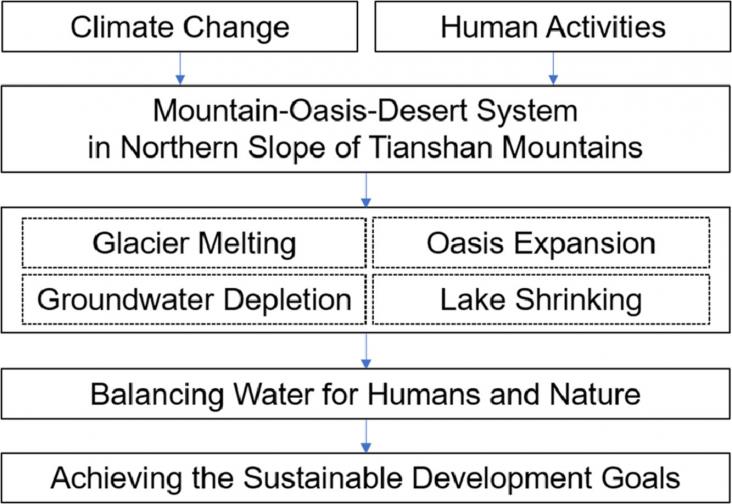A review of climate futures. This review helps substantiate how disciplinary and geographical assumptions and norms shape policy choices.
This chapter aligns with Goal 9: Industry, Innovation and Infrastructure and Goal 13: Climate Action by exploring the potential of AI in facilitating agricultural water management in the context of climate change and water scarcity.
Priya Kanwar, Kanwar P. Singh. Chapter 4 - Impact of climate change on water resources,
Editor(s): Ashwani Kumar Tiwari, Amit Kumar, Abhay Kumar Singh, T.N. Singh, Enrico Suozzi, Gagan Matta, Stefano Lo Russo,
Current Directions in Water Scarcity Research,
Elsevier,
Volume 5,
2022,
Pages 45-57
This important chapter discusses the impact of climate change on water resources, and the measures adopted by various government agencies and NGOs trying to cope with the growing challenges. It advances SDG 13 by pointing out actionable goals and strategies.

World Food Day is organized every year on October 16 to bring awareness to how our changing planet affects food production and distribution. In support of this year's theme "Leave no one behind", Elsevier presents a collection of freely available books and journal content.#WorldFoodDay 2022
This chapter advances UN SDG goals 11 and 13 by examining the current state of CO2 capture and conversion technologies and their deployment at the industrial scale to achieve net-zero CO2 emissions.
Background: Identifying how greenspace impacts the temperature-mortality relationship in urban environments is crucial, especially given climate change and rapid urbanization.

“Open for Climate Justice” is the theme for this year’s International Open Access Week (October 24-30). Open Access Week is an invaluable chance to connect the global momentum toward the open sharing of knowledge with the advancement of policy changes and the importance of social issues affecting people around the world.
Future sustainable food systems should more efficiently use natural resources and reduce food waste.

Under global warming, seasonal snow takes faster melting rate than before, which greatly changes the hydrological cycle. This study offer insights into understanding the effect from seasonal snow on vegetation and promote the sustainable utilization of regional vegetation in the Northern Hemisphere.

Climate change and economic growth are responsible for increased water stress.This study provides a baseline understanding of the interplay among water, climate change, and socio-economic development in NSTM.
